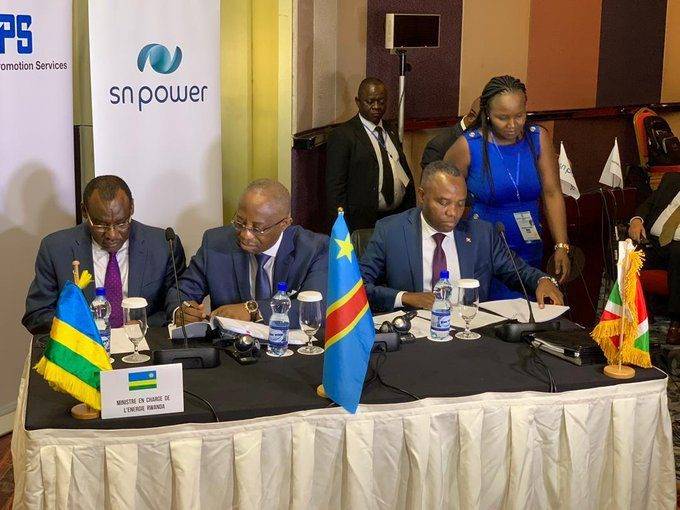Three East African Countries Are Teaming Up To Help Improve Each Other’s Electricity Access – And There’s USD 400 Mn Involved

Yesterday, three African countries signed a power project aimed at boosting the production of electricity in individual nations. Burundi, Democratic Republic of Congo and Rwanda have teamed up to kick start what is called the Ruzizi 3 initiative, signing the agreement in Kinshasa.
Known to be the first privately funded project in Sub-Saharan Africa, the plant will lean heavily on a common regional resource to generate power that will be shared equally among the three countries. According to expectations, Ruzizi 3 will generate electricity that costs between 11 and 13 US cents per kilowatt.
With an estimated initial capacity of 144 MW, Ruzizi 3 is reported to have the capacity to produce up to 200 MW when additional findings have been made. The construction and operation reportedly, will be shouldered by the Consortium IPS (Industrial Promotion Services and SN Power. Both companies have also signed public-private partnership agreements with the three African countries.
Ruzizi 3, which will be located in Bukavu in South Kivu province in the DRC, has an estimated cost of USD 400 Mn. It is reported that 54 percent of the funds will be provided by European donors such as the AFD, the European Investment Bank, KFW and the European Union.
Thanks to the African Development Bank – who is always involved in the continent’s power projects – 20 percent of the funds have been mobilized since 2015.
Ruzizi 3 will be launched in 2021, and the project will be fully inaugurated in 2026. The name is coined from River Ruzizi, through which Lake Kivy flows into Tanganyika.
Per a statement from Congolese Minister Pierre Kangudia, this project dates back to 1992, only to have not been realized since then because of the various instabilities that have rocked Burundi, DRC and Rwanda.
In 2012, the Democratic Republic of Congo cut power exports to Burundi by 3.0 MW, adding to the country’s shortfall and lowering water levels for hydropower. Burundi then secured USD 15 Mn in grant from the World Bank to use emergency generators to ease the electricity strife by adding 5.5 MW to the grid.
Burundi has one of the lowest electricity rates in the world, as only about 2.5 to 3.5 percent of the country’s 10 million people have access to electricity. In the DRC, only 16 percent of over 81 million people can avail reliable power, and around 99 percent of national electricity is generated from hydropower.
As of this year, 51 percent of Rwandan households are connected to electricity, 37 percent to the national grid and the balance to off-grid solutions. The Paul Kagame-led East African country has taken a policy decision to diversify power sources by adding mini-grid and off-grid connections to traditional dominant connections.